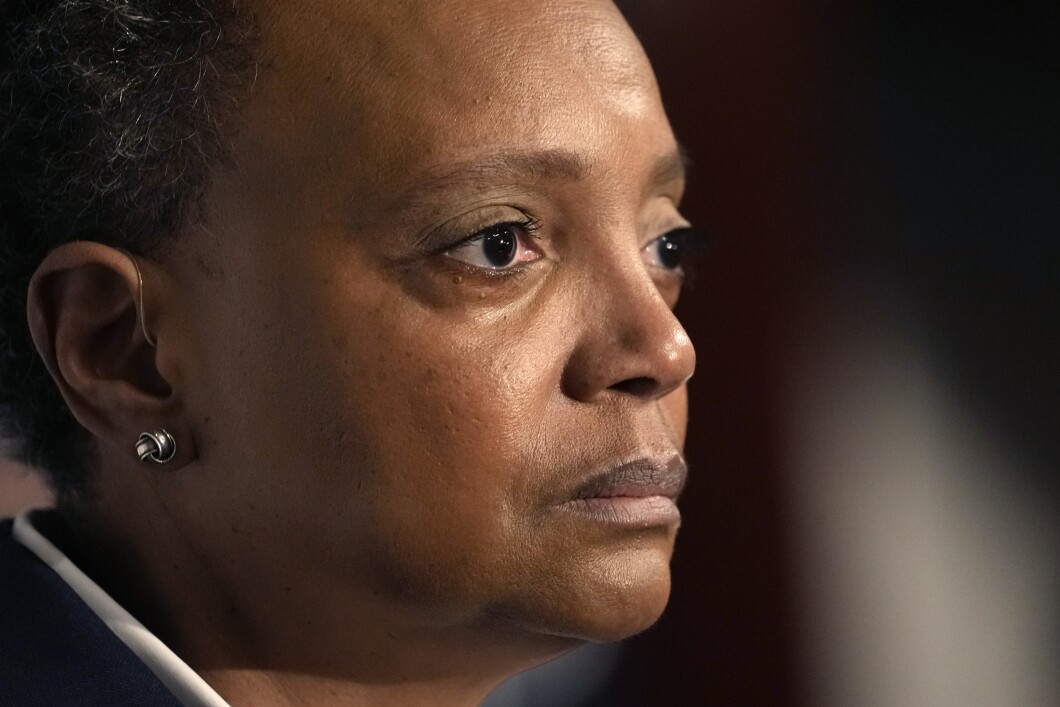
Chicago Mayor Lori Lightfoot became the latest liberal leader to discover Democratic voters have soured on the Left’s leniency on crime when she became the first mayor of her city in 40 years to lose reelection this week.
Over the past two years, Democrats who embraced a liberal criminal justice agenda at the city level have found themselves increasingly unwelcome among voters who once applauded their views.
CHICAGO MAYORAL RACE TESTS DEMOCRATS’ CRIME MESSAGE HEADING INTO 2024
That shift could portend a broader reckoning within the Democratic Party over how to square its ascendant activist wing with the reality that liberal reforms have remade big city politics.
Lightfoot failed to land a spot in the runoff after placing third on Tuesday behind two other Democratic candidates.
It was a stunning fall from grace for a Democratic mayor who, just four years earlier, swept into office with a 48 percentage-point victory.

Lightfoot had pitched herself as more progressive than her Democratic opponents in that 2019 race, and she focused in particular on the need to reform the Chicago police to address what she described as its unequal treatment of black residents.
She pushed for and eventually secured, among other reforms, restrictions on police pursuits that effectively banned foot chases in most cases.
That left an opening for one of the victorious Chicago mayoral candidates, Paul Vallas, to accuse Lightfoot of handcuffing the police force as it tried to get Chicago crime under control. Vallas was the top vote-getter on Tuesday and will advance to the runoff in April.
Chicago’s crime increase forced the mayoral race to focus intensely on public safety, but it was far from the only recent blue city race to hinge almost exclusively on how Democratic candidates pledged to restore law and order.
Lightfoot’s decision to seek reelection against the backdrop of dissatisfaction with her public safety record differed from how similar situations played out in Atlanta and Seattle, where two Democratic mayors opted not to run again when concerns about crime complicated their paths.
In Atlanta, for example, former Mayor Keisha Lance Bottoms surprised political observers when she decided in 2021 not to run for reelection, announcing that it was “time to pass the baton on to someone else.”
That came after Bottoms had attracted attention during her solo term as a rising Democratic star.
A crime wave in Atlanta sapped her political goodwill, however, and the race among the Democrats vying to replace her centered on which candidate was prepared to crack down more aggressively on crime.
In Seattle, former Mayor Jenny Durkan filed paperwork to run for reelection in early 2020.
But the violence of that summer in Seattle — and her failure to get it under control, including her description of a deadly three-week occupation of whole city blocks by protesters as a “summer of love” — eroded her credibility.
Durkan dropped out of contention after criticism of her leadership mounted, crime continued to rise, and businesses fled the city.
Her replacement, Bruce Harrell, ran on a pledge to crack down on crime. In one of the country’s most liberal cities, he campaigned successfully on increasing police funding in one of the early signs that the “defund the police” movement had lost popularity.
Liberal prosecutors have also faced a reckoning with voters.
In San Francisco last year, voters recalled district attorney Chesa Boudin after his pledge to stop prosecuting many low-level offenses preceded a spike in crime.
In Baltimore, Marilyn Mosby, the city’s former top prosecutor, lost her reelection bid last year during the Democratic primary in part over concerns about how violent Baltimore became on her watch.
Mosby was a progressive prosecutor who campaigned on shortening sentences and declining to prosecute some types of crimes.
While she encountered an ethics scandal that caused some political headwinds, the significant increase in murders that took place every year of her tenure contributed to a perception that she had lost the ability to do her job.
CLICK HERE TO READ MORE FROM THE WASHINGTON EXAMINER
Voters in some blue cities with off-year local elections will have more chances to weigh in on liberal criminal justice policies this year.
In murder-plagued Philadelphia, for example, public safety has played a major role in the open primary, which will take place in May, for an open mayoral seat.







